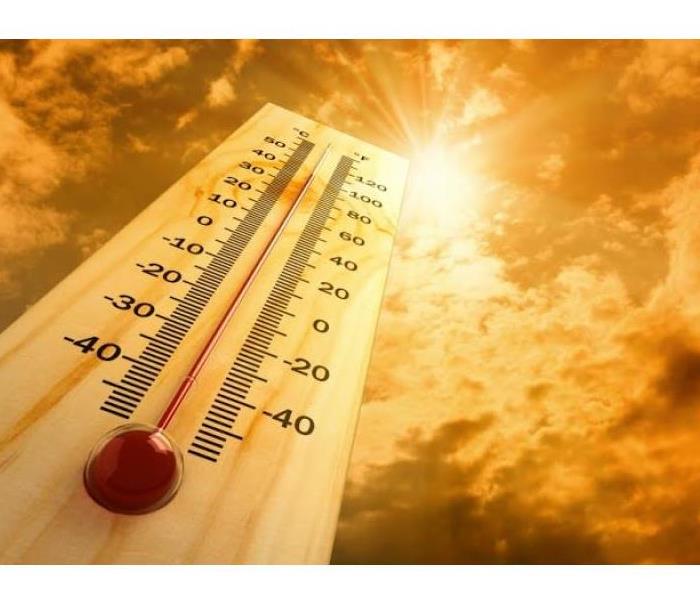Extreme Heat
6/14/2017 (Permalink)
Extreme Heat
Did you know? On average, heat is the number one weather-related killer in the United States (www.noaa.gov).
As summer approaches, it is time to consider safety precautions for extreme heat in the coming months. Heat affects all people, but especially, the young, the elderly, sick, and overweight. Urban area residents also have a greater chance of being affected than those who live in rural areas due to the heat island effect.
According to the EPA, "the sun can heat dry, exposed urban surfaces such as roofs and pavement, to temperatures 50-90 degrees hotter than the air, while shaded or moist surfaces - often in more rural surroundings - remain close to air temperatures." These surface heat islands are strongest during the day when the sun is shining, while the atmospheric heat islands are more likely after sunset "due to the slow release of heat from urban infrastructure."
Safety Tips for You and your Family
- Stay indoors in air conditioning
- Be sure to check on your pets who may outdoors and bring them inside
- Stay hydrated and limit alcohol and caffeine intake
- If you must go outside, wear loose-fitting, light-colored clothing, and be sure to apply sunscreen often.
- Pay attention to signs of heat exhaustion, which are heavy sweating; weakness; cold, pale, and clammy skin; nausea or vomiting; and fainting, according to the CDC.
The Dangers of Heat Exhaustion
Heat exhaustion can lead to heat stroke, which is life-threatening. Signs of heat stroke are a high body temperature, rapid or strong pulse, and possible unconsciousness. If you think someone has heat stroke, call 911 immediately and move the person somewhere cool. Reduce body temperature with cool, wet cloths or a bath. Do not give person with heat stroke fluids, and treat the situation as a serious medical emergency (CDC).
Baldwin County Residents:
Living in a humid environment means paying attention to the heat index. The heat index factors in the humidity which can make the temperature feel 15 degrees hotter.
Safety Tips for your Home
- Install window air conditioners snugly and insulate if necessary
- Check air-conditioning ducts for proper installation
- Install temporary window reflectors
- Weather-strip doors and sills to keep the cool air in
- Cover windows that receive morning or afternoon sun
- Keep storm windows up all year
Safety Tips for your Community
- Check on elderly at risk neighbors twice a day
- Encourage elderly to increase their fluid intake based on their doctor's recommendations
- Take elderly to air-conditioned areas if they have transportation problems
Extreme Heat is a serious danger. For more information on preparation and prevention, visit ready.gov or cdc.gov






 24/7 Emergency Service
24/7 Emergency Service
